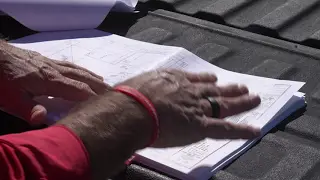What if plumbing—and the professional plumbers who maintain it—suddenly disappeared? In our modern era, we often take for granted the water running from our faucets or the toilet that flushes effortlessly. Meanwhile, plumbers remain the unsung heroes who ensure safe drinking water, reliable sanitation, functioning medical gas lines, and more.
Without them, entire cities would soon be overrun with health hazards, structural damage, and widespread chaos. By peering into this grim possibility, we can gain a deeper appreciation for the professionals, systems, and innovations that keep our water flowing and our homes livable. In this blog post, we’ll delve into why plumbing is vital for modern society, how it developed into a “silent backbone” of civilization, and why losing it would lead to consequences more serious than most people can imagine.
The Foundation of Modern Civilization
Even though it might seem invisible at times, plumbing is an integral part of everyday life. Historically, advanced civilizations like the Romans and ancient Greeks constructed sophisticated water systems—such as aqueducts and public baths—to supply fresh water and remove waste. That basic idea of safely delivering potable water and disposing of wastewater has remained the core of plumbing ever since.
- Roman Aqueducts: Spanning miles and harnessing gravity, these were engineering marvels that enabled cities to flourish.
- Medieval Times: While some towns had rudimentary drainage, many areas still relied on open sewers, leading to widespread illness.
- Modern Sewer Systems: Evolving from trial and error, today’s underground networks of pipes carry waste far from urban centers, significantly improving hygiene and reducing disease.
Over centuries, we’ve refined plumbing into an intricate, near-seamless system, hidden behind walls and beneath our feet. Yet this quiet efficiency can also mask just how indispensable it truly is.
The Unseen Tasks of Plumbers
Many assume plumbers only fix leaky pipes or unclog drains. In reality, they are highly trained professionals who handle a spectrum of responsibilities. Plumbers don’t just manage water lines; they also:
- Install Medical Gas Lines: In hospitals, plumbers lay the specialized pipes that carry oxygen and other life-saving gases.
- Maintain Gas Systems: Natural gas and propane lines heat our homes and power our stoves. Plumbers ensure these lines are installed and maintained safely.
- Protect Public Health: Through strict adherence to codes and regulations, they guarantee clean, potable water remains separate from contaminated wastewater.
From preventing cross-contamination in hospitals to setting up irrigation systems for agriculture, plumbers have a hand in almost every aspect of the water supply. Their expertise goes far beyond tinkering with wrenches and pipe cutters—it extends into safety, chemistry, biology, and engineering.
Imagining a World Without Plumbing
To understand the scale of what we’d lose, let’s walk through a day in a plumber-free world. Right from your first task in the morning—flushing the toilet or washing your hands—you’d encounter immediate difficulties:
- No Functioning Toilets: Without maintenance and repairs, the flushing mechanism and drainage lines would fail over time, leading to backflow and unsanitary conditions.
- Contaminated Water Supply: If no one is there to fix broken supply lines or prevent cross-contamination, the tap water you rely on could become tainted or stop flowing entirely.
- Flooded Homes: Even a minor leak would inevitably escalate into massive water damage. With no one to handle emergencies, entire buildings could become uninhabitable due to mold and structural deterioration.
- Complete Halt to Construction: Hospitals, schools, and commercial buildings all require professional plumbing. Ongoing projects would grind to a halt, and new developments would be impossible.
It’s alarming how quickly modern life would unravel without this critical trade. Let’s break down some of the most severe ramifications.
Health Hazards on a Massive Scale
Waterborne Diseases
One of the most profound health victories in the past century has been the dramatic reduction in waterborne diseases like cholera, dysentery, and typhoid—accomplished through rigorous sanitation standards. In a world without plumbers:
- Broken or outdated pipes would let pathogens seep into the water supply.
- Sewage could mix with drinking water if cross-connections went unchecked.
- Hospitals would be unable to sterilize equipment or provide patients with safe water.
Outbreaks that once plagued humanity could reemerge with a vengeance.
Limited Personal Hygiene
Regular handwashing is one of the most basic ways to stop the spread of illnesses. Without functioning plumbing, even this simple preventative measure becomes impossible. In crowded areas such as apartment complexes, the inability to maintain hygiene would fuel the rapid spread of infections.
Economic Consequences
Unprecedented Property Damage
Water damage is among the most expensive disasters to mitigate. Picture the magnitude of losses when leaky pipes or cracked sewage lines go unrepaired for weeks or months:
- Walls, floors, and ceilings could collapse from prolonged water saturation.
- Mold remediation costs would soar, leading to health issues and structural hazards.
- Entire neighborhoods might become unsafe, turning into ghost towns of rotting infrastructure.
Industries at a Standstill
From manufacturing plants that need water for processes to food facilities and agricultural farms requiring irrigation, plumbing is the lifeblood of countless industries. Without it, production lines would halt:
- Food Processing: Factories must have sterilized water and proper drainage to ensure the safety of their products.
- Energy Production: Power plants frequently use water for cooling systems; a lack of reliable pipes would disrupt electricity generation.
- Hospitality and Tourism: Hotels and restaurants wouldn’t survive long without reliable restrooms, clean kitchens, and safe water supplies.
The ripple effects would shake economies worldwide, triggering unemployment and stifling growth in every sector.
Environmental Impact
Polluted Rivers and Oceans
Sewage treatment plants rely on an intricate network of pipes and pump stations designed and maintained by plumbing professionals. In their absence:
- Untreated sewage could overflow into rivers, streams, and oceans, causing widespread ecological damage.
- Aquatic ecosystems, already vulnerable to pollution, would face mass fish die-offs and habitat destruction.
- Beaches and recreational waters would become unsafe for swimming, impacting tourism and public health.
Excessive Water Waste
Leaky pipes and inefficient fixtures already account for significant water loss. Plumbers often upgrade systems with water-saving technologies, from low-flow faucets to high-efficiency toilets. In a world without them, water waste would skyrocket, further stressing our already-depleting freshwater sources.
Why Plumbers Are Health Guardians
Doctors often say plumbers save more lives than they do by delivering clean, drinkable water. This statement might sound surprising, but consider:
- Clean Water’s Role: Safe water drastically reduces the spread of deadly diseases.
- Wastewater Management: Proper removal and treatment of sewage keep pathogens away from communities.
- Emergency Response: Plumbers fix urgent leaks or broken lines that could otherwise cause immediate hazards, such as gas leaks or flooding.
This central role in disease prevention and health maintenance is why many medical professionals regard plumbing as one of the greatest life-saving advancements in human history.
Plumbing: More Than Just Pipes
Plumbers also install and maintain complex systems often overlooked by the general public. Take medical gas piping in hospitals, for instance. These lines carry oxygen and other gases essential for surgery, emergency care, and patient life support. A failure in these lines could mean lost lives within minutes.
Additionally, plumbers work closely with builders, architects, and engineers to design sophisticated systems for large-scale projects. From climate-controlled greenhouses that rely on elaborate irrigation to commercial buildings equipped with energy-efficient water recycling, plumbing technology is at the heart of innovation in modern construction and sustainability.
The Ongoing Need for New Plumbers
Despite its importance, the plumbing industry continues to face a labor shortage. For years, society has pressed young people toward four-year college degrees, often overlooking the substantial opportunities offered by the trades.
- High Demand: Aging infrastructure across the world needs extensive maintenance and modernization.
- Competitive Wages: Skilled tradespeople often earn salaries that rival, or even exceed, many white-collar positions.
- Job Security: No matter how technology advances, people will always need safe water and sanitation.
By encouraging more individuals to become plumbers, we not only fill a workforce gap but also safeguard the health and safety of our communities. Plumbing represents an incredibly honorable profession—an industry that literally keeps civilization flowing.
Plumbing’s Role in Public Infrastructure
Think of every school, hospital, government building, and public park. Behind their walls and under the ground lie miles of pipes delivering potable water, removing waste, and powering essential operations. Maintaining this infrastructure:
- Prevents Public Health Disasters: Routine checks uncover leaks, blockages, and cross-contamination risks before they spiral out of control.
- Supports Urban Expansion: Cities can’t grow—building new homes, offices, or factories—without a reliable water and sewage framework.
- Enables Technological Progress: Advanced water recycling, eco-friendly solutions, and integrated building management systems all hinge on skilled plumbers who can implement these technologies.
What You Can Do to Show Appreciation
Given how critical plumbing is, how can average people support the profession?
- Respect the Trade: Recognize that plumbers have a high level of technical skill. They undergo rigorous training and must meet exacting standards of safety and efficiency.
- Encourage Youth: If you know students looking for fulfilling and stable careers, suggest they explore plumbing apprenticeships or technical colleges.
- Practice Water Conservation: Simple steps like fixing small leaks immediately, installing low-flow fixtures, and using water wisely show that you value the work plumbers do every day.
- Spread Awareness: Share information with friends and family, highlighting how plumbing is tied to public health, the environment, and economic stability.
Imagining the Day After
Now, picture the day after the hypothetical scenario in which plumbers vanish. Homes are flooded, hospitals are forced to turn away patients due to unsanitary conditions, and entire factories shut down for lack of clean water. City streets are littered with broken mains seeping sewage. Disease spreads faster than we can respond, and nations grind to a halt.
It’s a jarring image that underscores an undeniable truth: We can’t function without plumbers. Their expertise underpins nearly every facet of modern life. By understanding and respecting the importance of plumbing, we ensure that these critical systems—and the people who maintain them—remain strong.
Conclusion
A planet without plumbing would be a world in chaos. From the possibility of waterborne diseases and ecological devastation to collapsed industries and spiraling economic costs, the absence of skilled plumbers would expose just how fragile our modern conveniences really are. Clean water is the lifeblood of humanity, and proper sanitation is the cornerstone of public health.
This isn’t just about convenience—it’s about survival and sustainability. By valuing the plumbing profession, we recognize the profound impact of those who keep our water safe and our cities operational. If you’re thinking about a career path, consider plumbing as not only an opportunity to earn a respectable income but also a chance to serve as a real-world hero. After all, plumbers are the ones who protect our most fundamental resource: water.




